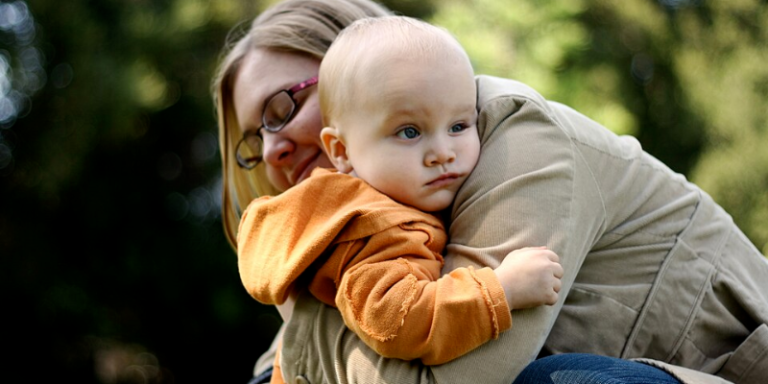Across disciplines including psychology, sociology, gender studies, media studies and labour economics, scholars consistently demonstrate that Mother’s Day symbolises more than a commercial celebration. Research highlights three interconnected themes:
- The psychological centrality of the mother–child attachment bond to emotional development.
- The role of family rituals in enhancing wellbeing and social cohesion.
- The evolving realities of modern motherhood, including employment patterns, unpaid labour, digital pressures and structural inequalities such as the motherhood penalty.
Together, these studies show that Mother’s Day operates both as a deeply personal emotional ritual and as a mirror reflecting broader societal dynamics.
1.0 The Psychological Significance of Mother’s Day
From a psychological perspective, Mother’s Day provides a structured opportunity for expressing gratitude, attachment and emotional recognition. According to Attachment Theory, early bonds between infants and primary caregivers form the blueprint for later relationships and emotional regulation (Bowlby, 1969). Secure attachment fosters emotional security, resilience and social competence, whereas disrupted attachment may contribute to later relational difficulties.
Celebrations such as Mother’s Day reinforce this attachment bond. Family rituals serve as emotionally meaningful practices that create continuity and shared identity. Marks, Cherry and Baumgartner (2015) argue that family rituals enhance psychological wellbeing and life satisfaction, particularly in societies characterised by individualism and fragmented family structures. For example, a child presenting a handmade card or preparing breakfast symbolises emotional reciprocity, reinforcing belonging within the family unit.
Textbook literature further supports this view. Berk (2018) explains that consistent expressions of affection strengthen internal working models of trust and security. In adulthood, reflective acts such as writing a heartfelt letter can reaffirm attachment bonds and promote intergenerational closeness.
However, scholars also recognise that Mother’s Day can evoke ambiguous grief and emotional distress. Neimeyer (2001) emphasises that commemorative rituals may intensify loss for individuals who have been bereaved. Similarly, infertility, estrangement or strained relationships can complicate the day’s emotional meaning. Educational research suggests schools are increasingly adopting inclusive approaches, such as celebrating “special persons” rather than exclusively “mothers,” to acknowledge diverse family experiences (Smith and Thomas, 2021).
Thus, while Mother’s Day often generates joy, it also requires emotional sensitivity and social awareness.
2.0 Motherhood in Contemporary Society
The traditional image of mothers as full-time homemakers has shifted dramatically. According to the Office for National Statistics (2021), nearly 75% of mothers in the UK are now in paid employment. This transformation reflects broader movements towards gender equality, expanded educational access and economic necessity.
Yet employment does not eliminate inequality. Budig and England (2001) identify the “motherhood penalty”, a persistent wage disadvantage experienced by mothers compared with non-mothers. This penalty arises from employer bias, career interruptions and expectations of reduced commitment. In contrast, fathers often experience a “fatherhood bonus”, receiving higher wages and favourable workplace perceptions (Gough and Noonan, 2013).
For instance, a professional woman returning from maternity leave may encounter slowed promotion prospects, while a new father may be viewed as more stable and deserving of advancement. Such disparities demonstrate how gender norms continue to shape labour market outcomes.
Recent scholarship expands this analysis to include emotional labour and cognitive labour—the invisible planning and organisational tasks often undertaken by mothers (Christopher, 2025). During the COVID-19 pandemic, these inequalities intensified. Studies reveal that mothers disproportionately managed home-schooling, childcare and domestic work alongside paid employment (Holmes, 2023; Puleo, 2024). The Institute for Fiscal Studies (2020) similarly reported that UK mothers carried significantly greater childcare burdens during lockdowns.
This period exposed the structural reliance on women’s unpaid labour. As Perrier (2022) argues, motherhood remains central to the reproduction of social life, yet its economic value is frequently undervalued.
3.0 Digital Culture and the “Ideal Mother”
Technological change has reshaped maternal identity. Social media platforms such as Instagram and Facebook create online communities offering advice and solidarity. Holmes (2023) notes that digital networks can provide emotional support and shared coping strategies, particularly during crises.
However, online environments also perpetuate intensive mothering norms—the expectation that mothers should devote exhaustive time, energy and resources to childrearing. Schiewe-Kopyra (2023) describes how digital comparison can foster feelings of inadequacy. Carefully curated images of immaculate homes, organic meals and smiling children may obscure the realities of exhaustion and imperfection.
Morgan (2023) found that interventions addressing maternal guilt significantly improved wellbeing among working mothers, highlighting the psychological costs of unrealistic expectations. Similarly, Jezer-Morton (2022) critiques the commodification of motherhood in digital spaces, where authenticity becomes a marketable performance.
For example, a mother scrolling through idealised portrayals on Mother’s Day may question her own adequacy, despite providing loving and responsible care. Thus, digital visibility simultaneously empowers and pressures mothers.
4.0 Diversity and Inclusion in Modern Motherhood
Contemporary scholarship also emphasises the expanding definition of motherhood. Richards, Bouman and Barker (2017) highlight growing recognition of transgender parents, same-sex couples, adoptive parents and non-binary caregivers. This shift challenges biological essentialism and foregrounds the social and relational dimensions of parenting.
Inclusive recognition is especially important on commemorative days such as Mother’s Day. A child raised by two fathers, for example, may celebrate a grandmother, aunt or guardian as a maternal figure. Such flexibility reflects the understanding that motherhood is defined not solely by biology but by care, attachment and responsibility.
5.0 Meaningful and Inclusive Ways to Celebrate
Informed by psychological and sociological insights, meaningful celebration can extend beyond commercial gestures:
- Writing a heartfelt letter strengthens attachment by articulating appreciation.
- Preparing a favourite meal demonstrates recognition of personal identity and preferences.
- Spending quality time fosters relational intimacy, reinforcing emotional bonds.
- Acts of kindness in her name, such as charitable donations, symbolise intergenerational values.
- Honouring memory through ritual, such as lighting a candle, supports grief integration (Neimeyer, 2001).
- Celebrating maternal figures acknowledges diverse family structures.
These practices align with research demonstrating that rituals cultivate belonging and psychological wellbeing (Marks et al., 2015).
6.0 Celebration and Reflection
Mother’s Day is far more than a day of flowers and cards. It embodies the enduring psychological importance of maternal attachment, the stabilising function of family rituals, and the evolving social realities of motherhood. In modern Britain and beyond, mothers navigate employment demands, structural inequalities, emotional labour and digital pressures while continuing to provide foundational care.
At the same time, inclusive understandings recognise that motherhood transcends biological definitions. As gender roles continue to shift, Mother’s Day functions not only as celebration but also as a moment of reflection—prompting societies to address the motherhood penalty, value unpaid labour, and support maternal wellbeing.
Ultimately, to honour mothers authentically is to acknowledge both their emotional contributions and the structural conditions shaping their lives. In doing so, we celebrate not only individual women but the social fabric sustained by maternal care.
References
Berk, L. (2018) Development Through the Lifespan. 7th edn. Boston: Pearson.
Bowlby, J. (1969) Attachment and Loss: Vol. 1. Attachment. London: Hogarth Press.
Budig, M.J. and England, P. (2001) ‘The Wage Penalty for Motherhood’, American Sociological Review, 66(2), pp. 204–225.
Christopher, E. (2025) Couples at Work: Negotiating Paid Employment, Housework, and Childcare. Bristol: Bristol University Press.
Gough, M. and Noonan, M. (2013) ‘A Review of the Motherhood Wage Penalty’, Sociology Compass, 7(4), pp. 328–342.
Holmes, E. (2023) Parenting during the COVID-19 Pandemic: The Digital Geographies of Mothering Online. Loughborough University.
Institute for Fiscal Studies (2020) How Are Mothers and Fathers Balancing Work and Family Under Lockdown? Available at: https://ifs.org.uk
Jezer-Morton, K. (2022) Affective Strategies for the Containment and Commodification of Motherhood. Concordia University.
Marks, L., Cherry, K. and Baumgartner, S. (2015) ‘Family Rituals and Psychological Wellbeing’, Journal of Family Psychology, 29(3), pp. 429–438.
Morgan, F. (2023) Improving Well-Being in Working Mothers. Northeastern University.
Neimeyer, R. (2001) Meaning Reconstruction and the Experience of Loss. Washington: APA Books.
Office for National Statistics (2021) Families and the Labour Market. Available at: https://www.ons.gov.uk.
Perrier, M. (2022) Childcare Struggles, Maternal Workers and Social Reproduction. Bristol: Policy Press.
Richards, C., Bouman, W.P. and Barker, M.J. (2017) Genderqueer and Non-Binary Genders. London: Palgrave Macmillan.
Schiewe-Kopyra, N.A. (2023) Being a Good Enough Mother. University of Edinburgh.
Smith, A. and Thomas, R. (2021) ‘Inclusive Education and Commemorative Days’, British Journal of Educational Studies, 69(4), pp. 475–493.









